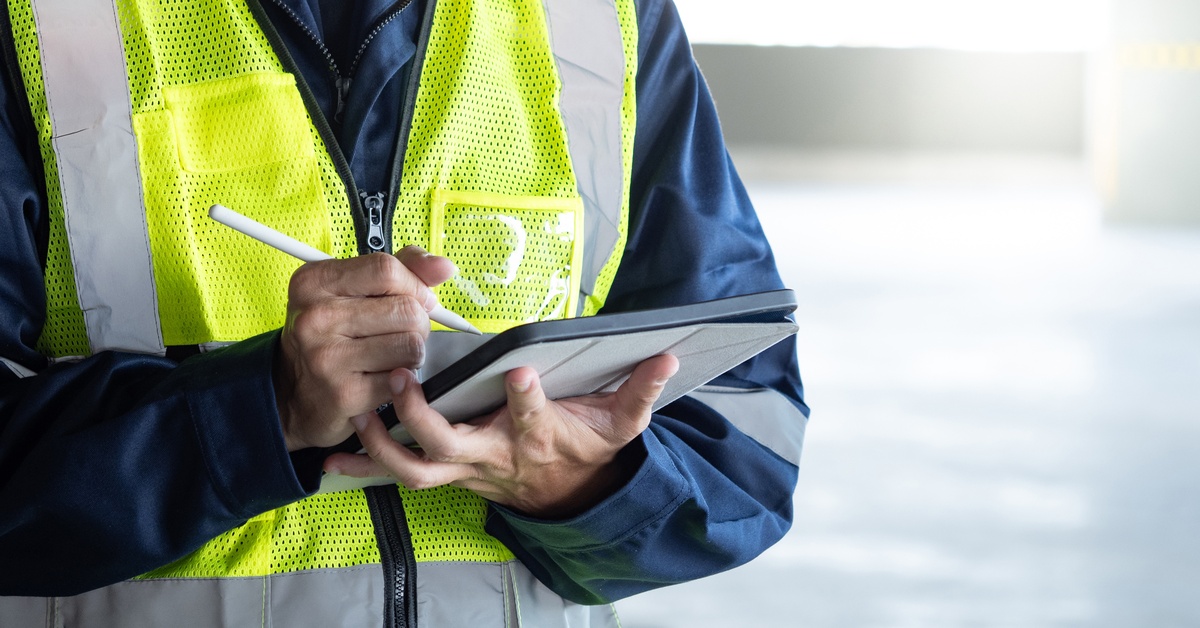
When managing tanks used for industrial purposes, water storage, or chemical containment, the integrity of your tank liners is critical. Regular inspections play a crucial role in maintaining your storage systems' performance, safety, and durability. Neglecting routine checks leads to costly repairs, operational disruptions, and even safety hazards. When you take a proactive approach and perform regulation tank liner inspections, you can protect your investment, extend their lifespan, and prevent costly and dangerous failures.
Detect Early Signs of Wear and Tear
Routine inspections are key to identifying cracks, blisters, abrasions, or any other early signs of damage in your tank liner. If left alone for too long, these minor issues can escalate into significant problems over time, leading to costly repairs or even full equipment replacements.
Thankfully, addressing these early signs promptly not only saves money but also prevents unexpected interruptions to your operations. Regular checks ensure that your liners remain in optimal condition, preserving the overall integrity of your tanks.
Prevent Leaks and Spills
Frequent inspections are essential in maintaining the structural integrity of your tank liners. They allow you to detect vulnerabilities, such as small tears or weaknesses, that could eventually result in leaks or spills. By identifying and addressing these risks early, you protect your facility and the environment from potential contamination or damage. This proactive approach safeguards your operations, avoids regulatory penalties, and ensures that your tanks can safely contain liquids over the long term.

Maintain Compliance With Regulations
Many industries face strict environmental and safety regulations regarding tank maintenance and containment standards. Neglecting inspections can lead to non-compliance, resulting in hefty fines, penalties, or harm to your company’s reputation.
Regular inspections help you ensure that your tank liners meet these requirements, allowing you to stay ahead of regulatory demands. Demonstrating compliance not only avoids legal challenges but also reinforces your commitment to responsible and ethical business practices.
Optimize Operational Performance
A properly maintained tank liner is critical for ensuring smooth operations. Damaged liners can lead to leaks, contamination, or structural issues, all of which disrupt workflows and reduce productivity. Regular inspections help prevent these problems, enabling uninterrupted performance. By addressing potential issues early, you:
- Reduce downtime
- Improve overall efficiency
- Maintain a competitive edge in your industry
Operational reliability is essential for meeting deadlines and keeping customers satisfied.
Extend the Life of Your Liners
Tank liners are a significant investment, and routine inspections play a crucial role in maximizing their lifespan. Regular evaluations allow you to identify and repair minor issues before they become major failures. When you address wear and tear in a timely manner, you can postpone costly liner replacements and ensure that your liners serve their intended purpose for as long as possible. This cost-effective approach helps you get the most out of your equipment while minimizing unnecessary expenses.
Protect Stored Materials
Whether your tanks store drinking water, food products, chemicals, or other sensitive materials, their quality and safety heavily depend on a well-maintained liner. Any damage to the liner can compromise its ability to protect the contents, leading to contamination or spoilage. This damage can then end up:
- Posing risks to consumers
- Damaging your reputation
- Leading to regulatory consequences
Regular inspections ensure your stored materials remain safe, preserving their quality and protecting your business interests.
Monitor Chemical Compatibility
Tank liners are specifically designed to resist certain chemicals, but prolonged exposure weakens their effectiveness over time. Routine inspections allow you to monitor whether the liner is still compatible with the chemicals or substances it contains.
When you identify signs of chemical degradation early, you can take corrective action before the problem escalates. Taking action early helps maintain the liner’s performance and ensures continued protection for your stored materials.
Reduce the Risk of Structural Damage
A compromised liner doesn’t just affect the stored contents; it can also impact the tank's structural integrity. Leaks caused by damaged liners lead to corrosion, weakening the tank’s walls and base over time. Without intervention, this results in costly structural repairs or the need for a full tank replacement. Regular inspections help catch these issues early, preventing long-term damage and preserving the structural soundness of your equipment.
Identify Improper Installation or Repairs
Inspections also serve as a valuable opportunity to verify the quality of liner installation and past repairs. Poor installation or subpar repairs can result in premature failures, which you may not spot without regular evaluations. A proactive approach prevents future problems and guarantees you can take care of problems before they worsen.
Lower Overall Maintenance Costs
Waiting for a tank liner to fail can lead to emergency repairs, operational disruptions, and significant expenses. Regular inspections and proactive maintenance are far more cost-effective. Addressing minor issues during routine checks helps you avoid the high costs associated with last-minute fixes, equipment downtime, and production halts.

Promote Workplace Safety
Damaged liners can lead to hazardous leaks or spills, posing risks to employees working in or around the tanks. Chemicals or other substances escaping from compromised liners create unsafe conditions, increasing the likelihood of workplace accidents. Regular inspections help you identify and mitigate these risks, creating a safer environment for your team. Beyond protecting your team, this safety-first approach reduces liability exposure and demonstrates your commitment to maintaining a secure workplace.
Enhance Reputation and Reliability
Properly maintained tank liners demonstrate to stakeholders, clients, and regulators that your business prioritizes safety, quality, and environmental responsibility. Demonstrating this reinforces your reputation as a reliable and diligent operator in your industry. A strong reputation attracts new opportunities, builds trust with customers, and solidifies your standing in competitive markets. Routine inspections play a key role in maintaining this level of reliability.
Adapt To Changing Operational Conditions
Over time, changes in operational conditions, such as temperature fluctuations, increased pressure, or new chemical use, can affect the performance of your tank liner. Regular inspections allow you to assess whether the liner can handle these changes and identify any early signs of stress or failure. This adaptability ensures that your tanks remain reliable even as operational demands evolve.
Prevent Service Interruptions
Unplanned liner failures can disrupt your operations, leading to delays, lost revenue, and dissatisfied customers. Routine inspections help you identify and address potential problems before they result in service interruptions. Maintaining your tank liners’ reliability ensures consistent operations and avoids costly downtime, keeping your business running efficiently and meeting customer expectations.
Regularly inspecting your tank liners is more than just a preventative measure; these inspections are an investment in the dependability and efficiency of your storage systems. Inspections help you avoid costly repairs, maintain compliance, prioritize safety, and ensure consistent operations. By taking the time to assess your liners’ condition, you protect the longevity of your equipment.
Additionally, if you spot a more complex problem, let Flexi-Liner and our team of tank lining specialists help. By partnering with us for routine inspections and maintenance, you can safeguard your storage system for years to come.
